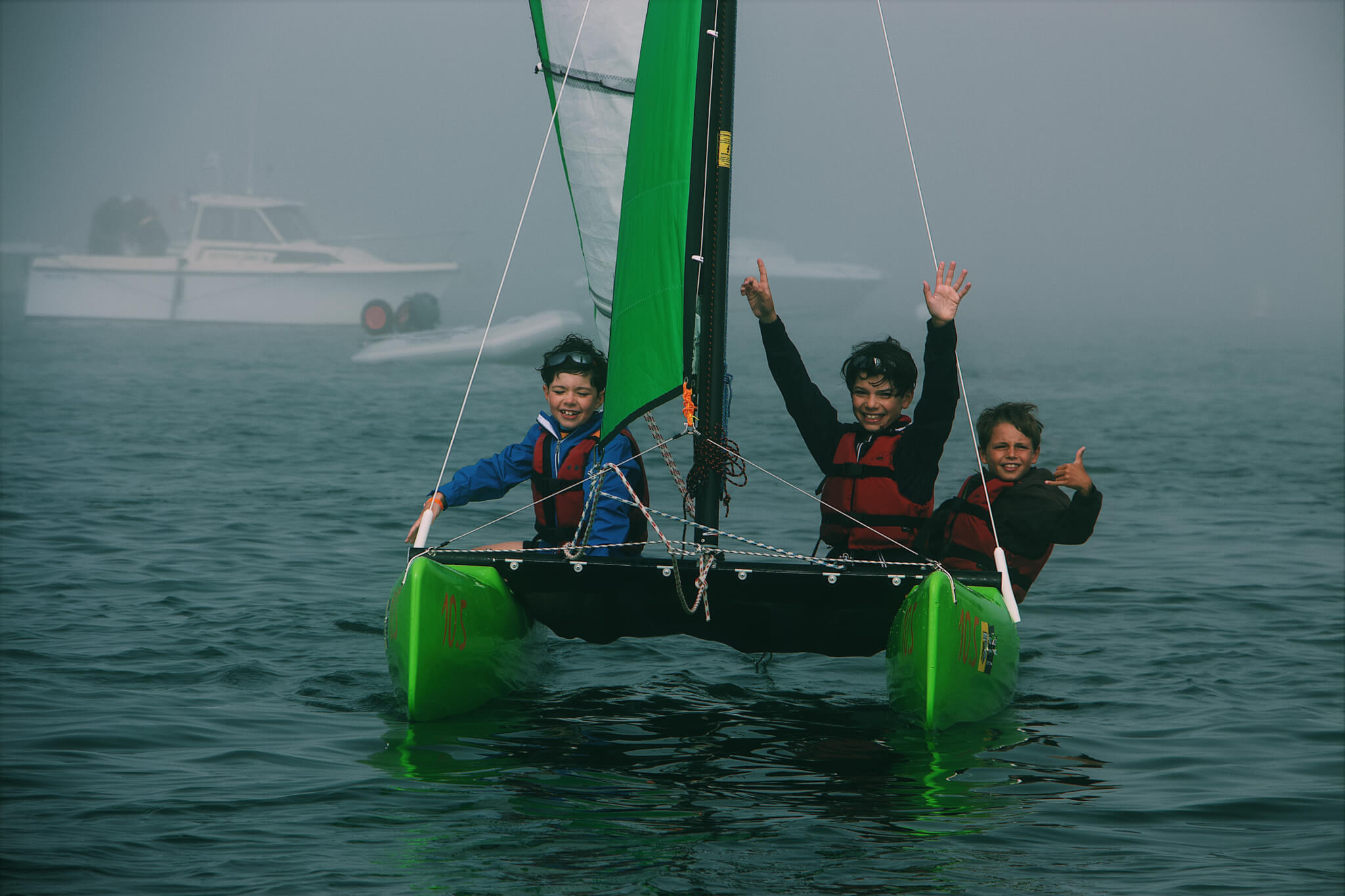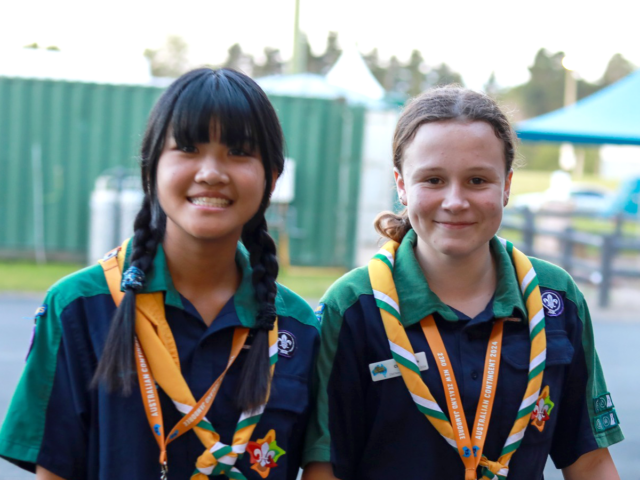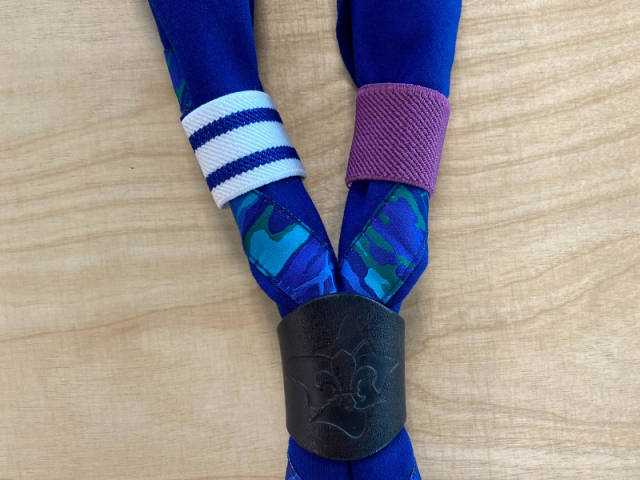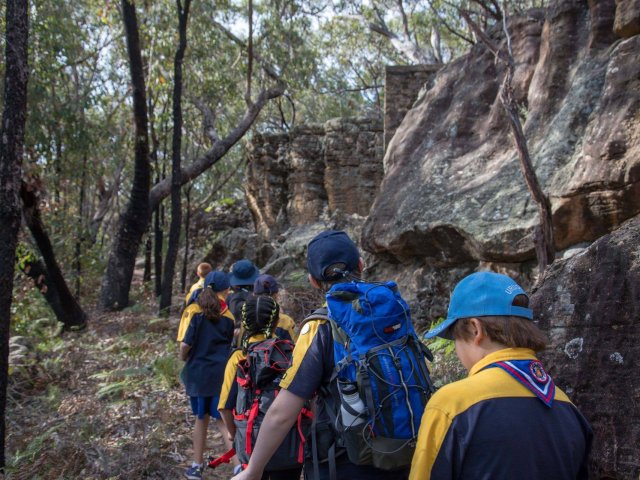New Youth Program
Adventurous, Fun, Challenging and Inclusive – What Do They Mean for Scouting?
![]()
They are words you might have heard associated with the New Youth Program, but how do we actually make Scouting Adventurous, Fun, Challenging and Inclusive?
Scouting is a journey built on an engaging youth program that is tailored to each individual. Each step in the journey has new adventures and challenges that are built on the skills, knowledge and experiences from the previous Section. On this journey, we make sure that the program provides opportunities that are adventurous, fun, challenging and inclusive.
These four words can help make every situation better. Use them as a quick quality test for an activity or idea. Every Scouting activity needs to involve all four of these. This approach is part of planning a program, but that doesn’t mean that’s the only time you should use it. You should consider them in things like your Group Council meeting, ceremony or training session to help them reach their potential too!

Adventurous
Adventure is something that can happen anywhere. In Scouting, we love experiencing outdoor adventure, though it’s important to remember that adventure is more than just this.
Adventure: A risk-taking experience that challenges an individual beyond their comfort zone, in any (or all) of the SPICES.
We think of adventure as something that can happen at any moment and in any situation – it is an individual experience that involves taking a risk; that challenges, and that helps to expand a comfort zone. Something that’s adventurous for one Scout, might not be for another, unless the experience is adjusted somehow.
It’s important to remember to balance risk in an appropriate way with an individual’s skill level, and any hazards involved. The ideal balance is one that is both challenging for the individual, and that fits within the scope of their skills and experience.
Adventure could be found in:
- Going to a new place for the first time
- Taking the lead on an activity
- Solving a problem
- Creating something from nothing
You’ll work with every individual Scout to find adventure in each Scouting experience.
Inclusive
Inclusion, along with diversity, is an important feature of the Scouting experience. At the local level, everyone can be involved in the program and experience a similar level of adventure, fun and challenge. Inclusion of everyone in the Unit program provides everyone with the chance to learn more about other people, and working together.
The activities within the Unit program should be available to everyone, and no individual should feel excluded. When planning the program and its activities, work with the Unit leadership team to find the best balance of adventure, fun, challenge and inclusion.
Consider:
- Can everyone be involved?
- What can we adjust so everyone can take part?
- Is it still adventurous, fun and challenging for everyone?
- What different roles could people take on to be involved and still experience adventure, fun, challenge and inclusion?
Remember, Scouting isn’t only about the Unit program; some things happen in Patrols, other groups of people, and on an individual basis. By nature, not all activities that happen beyond the Unit program will be able to include everyone – like an expedition that requires a certain level of skill in sailing.
Fun
Scouting is about non-formal education; we consider this approach to learning to be hands-on, meaningful, and enjoyable. Nothing we ever do in Scouting, especially within the program, should be dull or feel like a chore.
Fun Isn’t An Outcome Of A Scouting Activity, It’s at The Core of How We Do What We Do.
Tie in an element of fun and meaning by:
- Using a symbolic framework for an activity
- Coming up with ideas to make an experience unique and memorable, even if it’s something you’ve done before
- Making sure everyone is involved
- Trying something new
- Thinking outside the box
Remember that fun isn’t unique to Scouting – young people can find fun in a whole range of places. Just providing fun isn’t what keeps people in Scouting; the difference with Scouting is that we have fun while becoming better versions of ourselves.
Challenging
Challenge fits closely with adventure. It’s about doing something that extends your skill level. Through challenge, each Scout is able to develop and progress as an individual.
We encourage Scouts to challenge themselves through experiences that push their boundaries and lead to exciting individual achievement.
A challenging experience is one that:
- Is age and skill appropriate
- Hasn’t been done in the same way with the same individuals before
- Helps every Scout to do, and improve on, their best
- Can involve different tasks and responsibilities for different individuals



